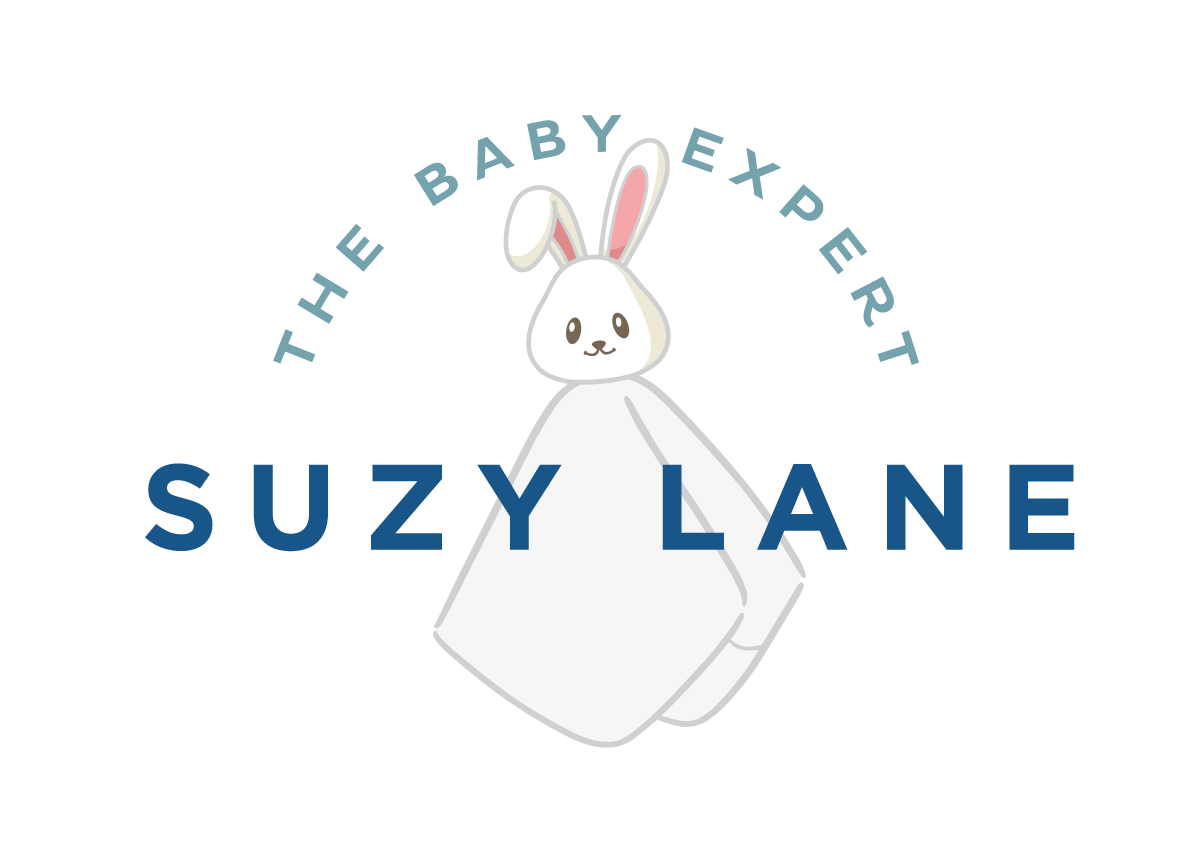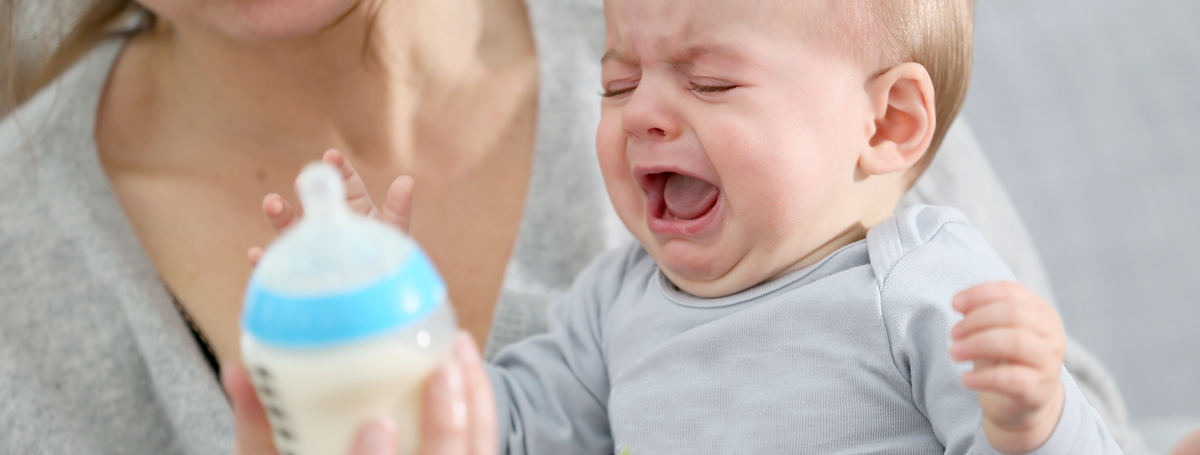Why is my breastfed baby refusing to bottle feed?
Who would you say is best qualified to know how much milk your baby needs to thrive? Is it you or is it perhaps your baby? Is it possible that you think he needs more milk than he instinctively knows he does?
Typical symptoms of bottle refusal
What is it that is making your baby refuse to feed? When the issue is not a medical one, there are different reasons why your baby will refuse to bottle feed voluntarily. Some of the most common symptoms are arching his back when he sees the bottle, crying as soon as he is placed in the normal feeding position, keeping his mouth firmly closed or if distracted, allowing the teat into his mouth but chewing on the teat without sucking on it. He may get upset and turn his head away only to cry again because he is hungry. It’s confusing to know what he really wants!
Perhaps your baby has had a previous experience of pain (reflux) or an accidental choking episode during feeding? However, this isn’t always the case. Bottle feeding should be easy, right? We often presume the baby will just suck on the teat when the bottle is put directly into his mouth. However, he has only ever felt your soft breast tissue in his mouth so anything else is a ‘foreign body and triggers his natural gagging reflex. Sometimes, when the bottle is tipped up and the milk shoots to the back of his throat, this scares him. Unlike breastfeeding, he can’t control the milk flow and he wasn’t prepared for it. When first introducing a bottle, you need to use a lot of sensitivity around exactly how to offer it to your baby. Think of it more as an invitation to feed rather than a right to put the teat into his mouth.
The baby who refuses to feed from 3 months old
Feeding is essential! It should be a positive experience throughout your baby’s lifetime so getting it right from the start is important. Why then is it hard to find support and correct advice around correct bottle feeding practices?
If you have been lucky enough for your baby to drink from the bottle in the first few weeks or months, you may still worry that perhaps your baby ‘isn’t feeding enough’ so you accidentally pressure him to drink more than he instinctively knows he needs. Your baby repeatedly refuses the milk because he is not hungry enough. His signals can appear confusing, From his recent experiences of bottle feeding, he becomes a little scared of losing control over when and how much he feeds. If this is repeated often enough this creates mistrust. Mistrust comes firstly from the parent who is naturally worried their baby isn’t feeding enough so pressures the baby to feed. Secondly, mistrust comes from the baby who is scared of the whole experience and each time he is fed, this fear is further reinforced.
This becomes stressful and often affects the whole family. Different people try to offer the bottle, parents try different bottles and teats, various times of the day and night, resorting to distraction techniques (rocking or bouncing, walking around, television etc) or even cup feeding or swapping surreptitiously from breast to bottle etc. Rather than solve the negative feeding issue this reinforces it. If the bottle isn’t offered in the right way, it then becomes ‘milk aversion’ and not just a simple case of your baby who is not quite hungry enough to open his mouth and feed.
When it’s not a medical concern
Often the first port of call is usually the health visitor or a medical professional, they check your baby’s health and find there’s nothing medically wrong so often they suggest ‘just keep feeding’. But this increases the pressure on you and then your baby. More desperate measures are used such as holding down your baby’s hands so they prevent him from knocking the bottle away, repeatedly offering a bottle within a 2 hour time period just to get some milk down him. Eventually, if this goes on for a long enough period of time, you can feel very lonely and trapped at home for all feeds because feeding out and about becomes impossible. You may realise your baby will only bottle feed when half asleep but then he becomes aware he is being ‘dream’ fed and starts refusing to feed at night too. In the most extreme cases of prolonged refusal, the baby may be diagnosed as ‘Failure to thrive’.
The good news!
The good news is that with the right advice, lots of patience, a purely baby-led approach and careful timing, bottle refusal and milk aversive behaviours are reversible. Just as you would if you were breastfeeding, parents should get advice about how to bottle feed their baby correctly from the beginning so that they create a positive and healthy feeding association around bottle feeding. It’s also a learned skill!




